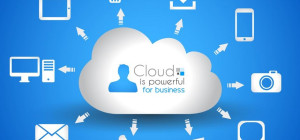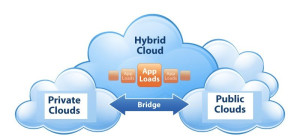 In the past few years, more and more companies have begun releasing products and services that use cloud computing technology. As the name suggests, cloud technology is where data is stored on remote servers and data centers. Instead of keeping all the hardware and software on site, it’s placed on a remote cloud for users to freely access. While there’s a lot of hype built up surrounding cloud technology, there are still some people who are skeptical whether it’s really all that beneficial. Here we’ll take a closer look at the pros and cons of cloud computing and reveal the true nature of this technology.
In the past few years, more and more companies have begun releasing products and services that use cloud computing technology. As the name suggests, cloud technology is where data is stored on remote servers and data centers. Instead of keeping all the hardware and software on site, it’s placed on a remote cloud for users to freely access. While there’s a lot of hype built up surrounding cloud technology, there are still some people who are skeptical whether it’s really all that beneficial. Here we’ll take a closer look at the pros and cons of cloud computing and reveal the true nature of this technology.
Cons
The biggest complaint some people may have about cloud computing is the speed. In most cases, there are several different clients using the same hardware to access their data or perform processing operations. Depending on how many clients are currently accessing the cloud, and what type of hardware it’s operating with, certain loads can bog the system down. This results in slower computing time when you try to access or use the cloud. The good news, however, is that you probably won’t find yourself in this position since cloud companies spread their clients out to balance the load.
Another somewhat of a disadvantage of cloud computing is that users and clients have little control over the base operations. Since cloud computing creates a virtual work center for users, there’s really no way for clients to go in and modify the base. If something needs to be adjusted with the hardware, clients must contact the cloud company to see if they can perform the operation.
Pros
The truth is that there are far more advantages to using cloud computing than disadvantages. Let’s first start off with one of the greatest advantages - cost. Cloud companies typically only charge clients based on data usage. Even if you send and receive a lot of data, you’re almost certain to come out cheaper using cloud computing than you would by purchasing all of your own hardware. The price alone is reason enough for some companies to make the switch to cloud computing.
Cloud computing also automatically backs your data up at a remote location. If your desktop PC crashes or is stolen, you can rest assured knowing that all of your important data is stored on the cloud. It’s not something most of us want to think about, but hardware failures and crashes do occur. Having all of your data wiped out can have disastrous consequences on your business. If this happens, just access the cloud from your new computer, download all of the necessary files, and it will be like nothing even happened.
You might be surprised to learn that most clouds can be accessed from a variety of different devices. Your desktop PC, tablet computer and smartphone are just a few of the many devices capable of accessing the cloud. Check with your cloud provider to learn more about which devices are integrated with their technology.
An article published on behalf of Ms. Angie. She is a content contributor for MYVAO. Angie enjoys writing about accounting, business marketing, and much more. Visiting MyVao.com for your Quickbooks hosting needs is what she suggests to friends and family.







